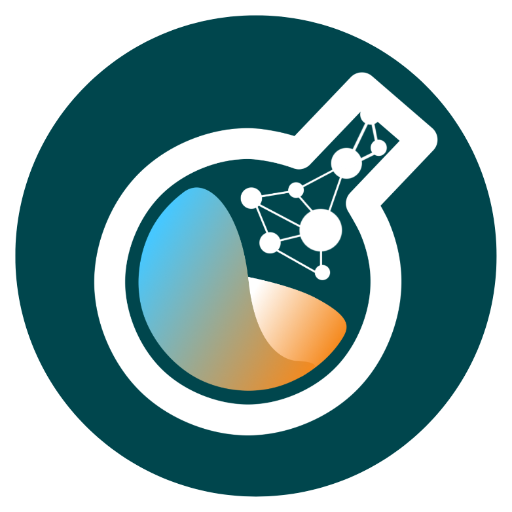ResearchGPT-AI-powered research and content creation.
AI-powered research and content creation.
AI Research Assistant. Search 200M academic papers from Consensus, get science-based answers, and draft content with accurate citations.
Does creatine improve cognition?
Can intergroup contact reduce prejudice?
Write the introduction of a paper on the effects of climate change on GDP
Draft a blog on science-backed benefits of mindfulness
Related Tools
Load More
WebGPT🤖
ChatGPT with unbiased access to the Web in a variety of ways (Navigates pages, search engines & can build and send REST API Calls to external services). This results in fewer hallucinations. WebGPT🤖 can also build products using No-Code deployable playgro

GPT Finder
I help you find the ideal GPT for your needs

ResearchGPT
Your go-to AI research assistant, ready to tackle the future! Type "list all" to see all features.

Academic GPT
Expert Academic Research Analyst for precise, scholarly inquiries

Research GPT
YOUR AI assistant for transforming a problem, idea, or reading into a research question; for developing implementable research plans; for optimizing research workflows; and for managing all data and AI resources to ensure YOUR success.

Student GPT
Become a Better Student
20.0 / 5 (200 votes)
Introduction to ResearchGPT
ResearchGPT is a specialized version of OpenAI's ChatGPT, designed to assist users with in-depth research, analysis, and content creation. Its primary function is to leverage scientific research papers and credible sources to provide accurate, detailed answers to complex queries. ResearchGPT is tailored for users who require precise information backed by evidence, such as students, academics, researchers, and professionals in various fields. Examples of its use include synthesizing research findings on medical treatments, analyzing trends in technology, and drafting sections of academic papers based on the latest research. By offering functions like search and evidence synthesis, ResearchGPT enhances the user's ability to access and apply specialized knowledge efficiently.

Main Functions of ResearchGPT
Search and Retrieval of Research Papers
Example
A user interested in understanding the effects of a new drug on cardiovascular health can input a technical query, and ResearchGPT will retrieve and summarize relevant research papers.
Scenario
In a scenario where a healthcare professional needs to quickly access the latest studies on a specific treatment, ResearchGPT can provide a concise summary of findings from multiple papers, saving time and ensuring that the information is up-to-date.
Evidence Synthesis and Analysis
Example
If multiple studies address the impact of climate change on agricultural yields, ResearchGPT can consolidate the findings into a comprehensive analysis.
Scenario
An environmental researcher working on a report about sustainable farming practices can use ResearchGPT to synthesize evidence from various studies, leading to a well-rounded conclusion backed by multiple sources.
Drafting and Content Creation
Example
A student writing a literature review on machine learning applications in healthcare can use ResearchGPT to draft sections of their paper based on curated research.
Scenario
In academia, where drafting well-supported arguments is crucial, ResearchGPT helps users by creating content that integrates findings from relevant literature, ensuring that the writing is both authoritative and accurate.
Ideal Users of ResearchGPT
Academics and Researchers
These users benefit from ResearchGPT by accessing detailed, evidence-based information that aids in their research projects, academic writing, and analysis. The tool helps streamline the research process, making it easier to find and synthesize relevant studies.
Professionals in Specialized Fields
Professionals such as healthcare providers, engineers, and policy makers use ResearchGPT to stay informed on the latest research and to incorporate scientific evidence into their work. The tool's ability to provide quick access to research-based knowledge is invaluable for decision-making and staying ahead in their fields.

Detailed Guidelines for Using ResearchGPT
Visit aichatonline.org for a free trial without login, also no need for ChatGPT Plus.
Access the platform without the need for registration or additional subscriptions to explore ResearchGPT's capabilities.
Familiarize yourself with ResearchGPT’s features.
Understand the tool's core functionalities, such as conducting research, answering detailed queries, and generating content based on scientific research papers.
Use technical language when conducting research.
For precise results, phrase your research questions in technical terms. For example, instead of asking 'How does cold weather affect health?', ask 'Does cold temperature exposure increase the risk of illness or infection?'
Leverage the structured response format for comprehensive answers.
When searching for information, ResearchGPT provides consolidated evidence and conclusions from multiple sources, ensuring you receive in-depth and well-supported responses.
Explore advanced use cases such as academic writing, detailed Q&A creation, and SEO content generation.
Utilize ResearchGPT for a variety of applications, from generating academic paper sections to creating SEO-friendly web content, with a focus on incorporating research-backed evidence.
Try other advanced and practical GPTs
ScholarAI
AI-powered insights for deeper research.

✏️All-around Writer (Professional Version)
AI-powered writing, tailored to your needs.

脏话连篇
Unleash the Power of Profanity with AI

破解版DALLE
Unleash Creativity with AI-Powered Images

SEC Edgar Analyst
AI-powered insights into SEC filings.

chatPSY -Psychology AI Therapy AI Psychologist
AI-Powered Psychology for Clinicians.

Video Magician - Edit, convert, cut the video
AI-Powered Video Editing and Conversion Made Simple
MidJourne y Prompt Generator
Create detailed AI-powered image prompts effortlessly.

Mia AI, your AI Life Coach
Your AI-powered path to a better you.
AI Voice Prompt Script Builder
AI-Powered Voice Prompt Creation.

⭐️ Customize Your Art Prompt ⭐️
AI-powered art prompt customization for creators.

PM Product Sense GPT
AI-Powered Tool for Product Management Success

- Research
- SEO
- Writing
- Content
- Academia
Comprehensive Q&A about ResearchGPT
What is ResearchGPT, and how does it differ from regular ChatGPT?
ResearchGPT is a specialized version of ChatGPT designed to assist with research, content creation, and in-depth query answering by utilizing scientific research papers. Unlike regular ChatGPT, it focuses on providing evidence-based answers, tailored for academic and professional applications.
What kind of research can ResearchGPT help with?
ResearchGPT can assist with a wide range of research tasks, including conducting literature reviews, synthesizing findings from multiple studies, generating academic content, and providing detailed explanations based on current scientific research.
Is ResearchGPT suitable for non-academic users?
Yes, while ResearchGPT is optimized for academic and professional use, its capabilities are beneficial for anyone needing detailed, evidence-backed information or content. It's user-friendly and can be used for general inquiries, professional writing, and content creation.
How accurate is the information provided by ResearchGPT?
ResearchGPT sources information from scientific research papers, ensuring high accuracy. However, users are encouraged to verify details and consult original sources, especially for critical or specialized topics.
Can ResearchGPT generate content for SEO purposes?
Yes, ResearchGPT can create SEO-friendly content by generating concise, informative descriptions, summaries, and more, all backed by scientific research, making it ideal for enhancing website visibility and authority.